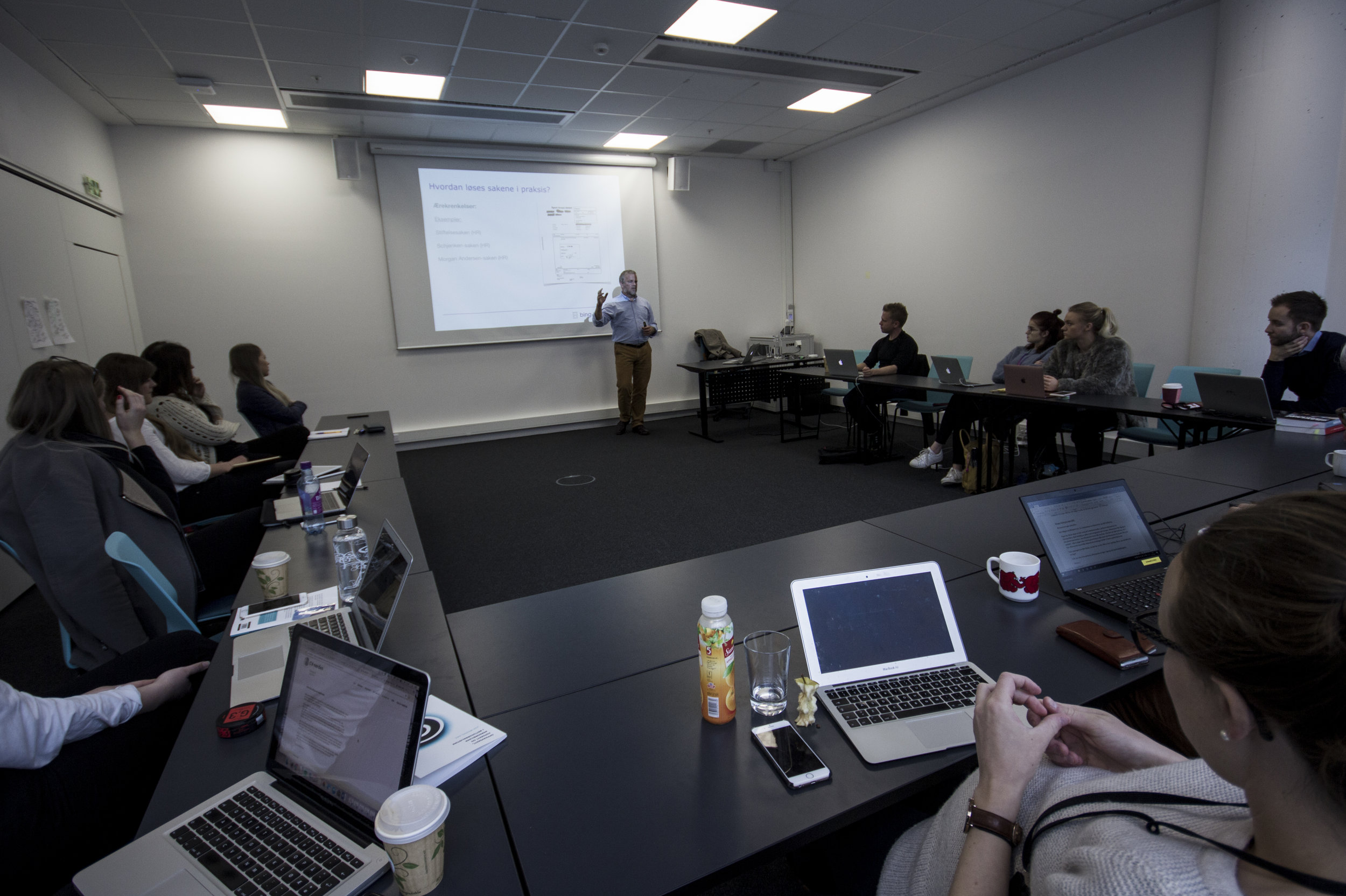Encrypted Services Promote Privacy, Attorney Says
BELIEVES IN THE POWER OF TECHNOLOGY: In his presentation at Media City Bergen, Jon Wessel-Aas talked about privacy as a limitation for freedom of press. (PHOTO: Siri Flatland/ViSmedia)
The experienced media attorney Jon Wessel-Aas says encrypted technology helps people take back their privacy. Encrypted technology is getting increasingly available.
On October 24, the Norwegian media attorney gave a guest lecture at the Media City Bergen on "Privacy as a limitation in freedom of press."
With the expansion of new technologies comes surveillance and openness. The new transparency has contributed to weakening privacy, despite that "the judicial privacy is better than ever," Wessel-Aas argued.
TO THE FUTURE: Wessel-Aas spoke to an audience of mostly future journalists. (Photo: Siri Flatlandsmo/ViSmedia)
People agree to less privacy
The issue is that people want to use the services, despite the fact that they have to let go of some of their privacy to do so, he explained.
"[Privacy] is based on consent," Wessel-Aas argued. People have to say "Yes, I approve" to terms and conditions and share personal information to get access to free services, for instance Facebook. And most people do, perhaps even without reading the terms and conditions.
"You decide to disclaim your privacy, because you want access to these services," he said.
Encrypted technology on the rise
In recent years, technology that encrypts information has become cheaper and more easily available. Wessel-Aas is convinced that the access to encryption tools helps people maintain their privacy. Automatically encrypted services remove the issue of having either to agree to sharing private information, or not use the services at all.
"Technology has been quite primitive. A lot of information has been open, now it’s becoming more and more encrypted,” Wessel-Aas explained. In order to use certain apps, people no longer have to share their private information and therefore it "comes in as a technological way to compensate," he argued.
As an example of the new trend he mentioned popular encrypted messaging apps such as Signal and WhatsApp. People may not use them just because they're encrypted – they’re also convenient to use.
"I believe that when encrypted services become available, more people will chose them. For example, encrypted e-mail was difficult to use a few years ago. Now it's easy."
FROM ABOVE: Drones offer a new perspective – and makes privacy more difficult. (Illustration: Mark Lehmkuhler/Flickr)
Drones as an issue of privacy
Another issue upon which Wessel-Aas touched in his talk was the high resolution in modern photographs combined with drones. He argued that this combination poses a privacy issue.
"Today you can take a photo from a drone where people look like ants. However, the resolution is so high that you can see faces clearly if you zoom in. Can we then say that you haven't taken a photo of people's faces?"
To conclude: Technology poses possibilities and issues for people's privacy.
“Technology has been quite primitive. A lot of information has been open, now it’s becoming more and more encrypted”
Drone Journalism is an issue that many of ViSmedia's researchers are concerned about. Take a look at these examples:



